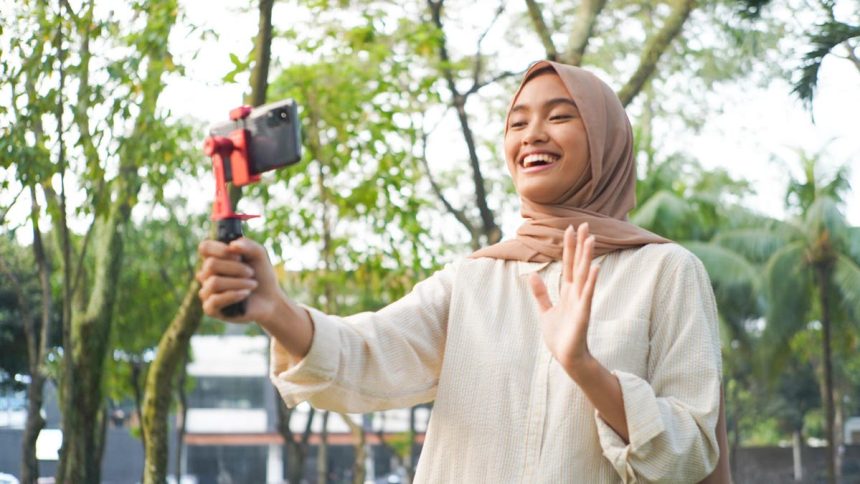Forbes 30 Under 30. Founder and CEO of Glewee, the all-in-one influencer marketing platform.
The potential of artificial intelligence (AI) generated content for influencer marketing is getting harder and harder to ignore. By now, most of us have played with ChatGPT and discovered its many possibilities. However, despite all the benefits AI might have, it’s hard to turn on the news and not hear something about its potential legal issues, such as privacy, bias and discrimination, plagiarism, and intellectual property violations.
But what the news isn’t focusing as much attention on is AI-powered photo-editing tools such as filters (smoothing, sharpening and edge enhancement), retouching and beautification (skin smoothing, blemish removal’ and body reshaping), and retouching features (background and object reduction, composition, brightness, contrast and color balance). All of this can be done with a single click by skilled and unskilled users alike, within seconds.
While photo-enhancing AI tools enable influencers to automatically edit their photography, allowing them to work faster and cheaper, it is important to consider the legal and ethical issues that could plague this technology. Misusing AI photo-editing tools can not only lead to misrepresentation but may also expose influencers to precarious situations and consequences. Let’s look into the far-reaching implications of this problematic issue.
The Power Of Authenticity
Authenticity is key to success in social media, where users crave real connections and relatable content. Transparency and authenticity are crucial for influencer marketing success, as they foster trust between influencers and their audiences—a sentiment echoed by 94% of marketers.
However, AI photo-retouching and enhancing tools can undermine this authenticity, creating a disparity between influencers’ managed online personas and their true selves. Influencers who use AI photo-retouching tools run the risk of presenting themselves and the brand that hired them in an idealized, misleading light. This deception can adversely impact their relationship with followers by lowering audience trust.
Ethical Concerns
Doctored photos also have serious ethical implications that can’t be brushed aside. When influencers use retouching and filtering tools to make themselves thinner or thicker, they pressure their audiences to reach an unrealistic standard of beauty and help cultivate a culture of comparison and inadequacy. This unhealthy trend can also negatively affect the psychological well-being of influencers and their followers, spurring body-image anxieties and lowering self-confidence.
Legal Ramifications
Influencers who rely heavily on AI photo-retouching tools and fail to label them appropriately may face legal challenges. More advertising regulations and consumer protection laws are being made that require transparency and honesty in promotional content. Failing to disclose the use of retouching tools or presenting an altered appearance may result in accusations of false advertising and misleading consumers, with potential legal consequences.
For example, to help audiences distinguish between manipulated and authentic content, Norway passed big changes to its Marketing Act in 2021. The amended law aims “to help reduce body pressure in society due to idealized people in advertising. Among other things, a duty is introduced to mark retouched or otherwise manipulated advertising when this means that the person’s body in the advertisements deviates from reality in terms of body shape, size and skin.”
France is about to take it a step even further. Along with requiring manipulated photos to be disclosed if used with a paid campaign and banning influencers from promoting cosmetic surgeries, online betting and financial products, France will also be the first to legally define what a commercial influencer is. Currently, the United States only requires influencers to disclose if they have any material connection with the company they are promoting.
Why Brands Need To Care
Remember when Victoria’s Secret got into hot water for photoshopping their models? Some say the company hasn’t been able to come back. In 2020, the brand announced it was closing close to a quarter of its stores in North America.
Imagine if a beauty company’s paid influencer promoted their anti-aging cream and it was revealed that the creator had been using AI photo editing. It would likely lead to a significant loss of trust and credibility for the influencer and the brand. This could result in consumer backlash, negative publicity and a decline in sales and brand reputation.
While AI-powered photo-retouching tools offer convenience and enhancement possibilities, influencers should exercise caution, and brands should ensure their influencers are responsible. The allure of presenting a perfect image must be weighed against the potential dangers of misrepresentation, loss of authenticity, ethical concerns and legal ramifications.
As AI continues to shape the digital landscape, social media influencers must balance leveraging its capabilities for creative expression and ensuring ethical practices. Influencers who prioritize transparency, authenticity and genuine connections with their audience can foster stronger relationships, establish trust and thrive in the ever-evolving landscape of social media and influencer marketing.
Forbes Business Council is the foremost growth and networking organization for business owners and leaders. Do I qualify?
Read the full article here









